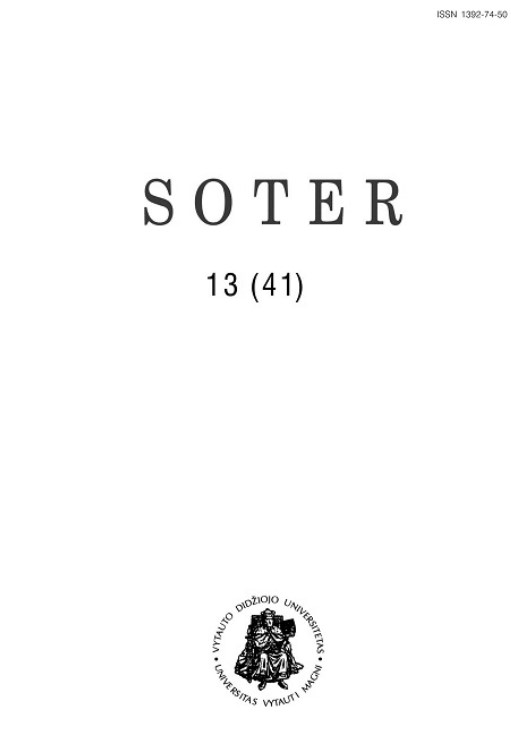TIKĖJIMO REIKŠMĖ SUAUGUSIO ŽMOGAUS UGDYMUI IR SAVIUGDAI
MEANING OF FAITH IN ADULT’S LIFE IN THE ASPECT OF EDUCATION AND SELF-EDUCATION
Author(s): Aušrinė ZulumskytėSubject(s): Ethics / Practical Philosophy, Psychology of Self, Sociology of Education, Sociology of Religion
Published by: Vytauto Didžiojo Universitetas
Keywords: faith; adult; religious education; self-education;
Summary/Abstract: The aim of this article is to research the attitudes of adults of different age towards religious self-determination and its (self) development. From the educological view, socially active adults fall into groups of early and medium maturity, and their representatives attitudes towards the issues of faith are quite different. Survey data show the approaches of two generations. Although most of adults declare they belong to some religious confession, however only few of them are practitioners. The predominating is the style of life with seldom participation or non-participation in the activity of Church and community. Such people are especially often met among young adults. The main things, which faith can give to an adult, include peace, confidence, hope, spiritual strength, and understanding of values. However, such qualities can only be experienced by people having deep faith. Religious experiences do not reach non-believers, according to respondents. Adults admit the need to talk, to discuss religious topics in both explaining hardly understandable elements and symbols of religious service and solving essential issues of the existence. As democratic processes are present in the society, most adults do not try to hide their religious beliefs. However, older people declare them bravely and openly, and younger ones are more likely to adapt to the situation and to behave according to the specific circumstances. Positive view to the meaning of faith in life is still more related to the continuation of traditions, which commits parents to carry out certain obligations of religious education. Such formal recognition of faith is often considered as a guarantee of moral life-style in society, until the person matures to the conscious self-determination.
Journal: SOTER: religijos mokslo žurnalas
- Issue Year: 41/2004
- Issue No: 13
- Page Range: 137-147
- Page Count: 11
- Language: Lithuanian

